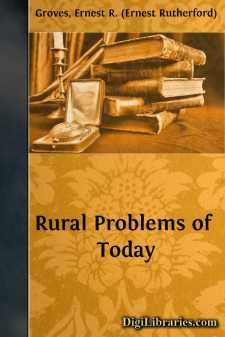Categories
- Antiques & Collectibles 13
- Architecture 36
- Art 48
- Bibles 22
- Biography & Autobiography 813
- Body, Mind & Spirit 142
- Business & Economics 28
- Children's Books 17
- Children's Fiction 14
- Computers 4
- Cooking 94
- Crafts & Hobbies 4
- Drama 346
- Education 46
- Family & Relationships 57
- Fiction 11829
- Games 19
- Gardening 17
- Health & Fitness 34
- History 1377
- House & Home 1
- Humor 147
- Juvenile Fiction 1873
- Juvenile Nonfiction 202
- Language Arts & Disciplines 88
- Law 16
- Literary Collections 686
- Literary Criticism 179
- Mathematics 13
- Medical 41
- Music 40
- Nature 179
- Non-Classifiable 1768
- Performing Arts 7
- Periodicals 1453
- Philosophy 64
- Photography 2
- Poetry 896
- Political Science 203
- Psychology 42
- Reference 154
- Religion 513
- Science 126
- Self-Help 84
- Social Science 81
- Sports & Recreation 34
- Study Aids 3
- Technology & Engineering 59
- Transportation 23
- Travel 463
- True Crime 29
Rural Problems of Today
Categories:
Description:
Excerpt
THE RURAL WORKER AND THE COUNTRY HOME
With reference to the care of children, faulty homes may be divided into two classes. There are homes that give the children too little care and there are homes that give them too much. The failure of the first type of home is obvious. Children need a great deal of wise, patient, and kindly care. Even the lower animals require, when domesticated, considerable care from their owners, if they are to be successfully brought from infancy to maturity. Of course children need greater care. No one doubts this. And yet it is certainly true that there are, even in these days of widespread intelligence, many homes where the children obtain too little care and in one way or another are seriously neglected.
The harmfulness of the homes that give their children too much care is not so generally realized as is the danger of the careless and selfish home, although, in a general way, everyone acknowledges that children may be given too much attention. The difficulty is to determine when a particular child is being given too much adult supervision and too little freedom. No one would question the fact that a child can become an adult only by a decrease of adult control and an increase of personal responsibility. Nevertheless, in spite of a general belief that a child needs an opportunity to win self-government, there are parents not a few who, from love and anxiety, run into the danger of protecting and controlling their children too much. The father or mother spends too much time with the children. The children are pampered. Too many indulgences are permitted them. Children in these over-careful homes are likely to grow up neurotic, conceited, timid, babyish, daydreaming men and women, who are of little use in the world and are often a serious problem for normal people. Probably this second type of a deficient home is more dangerous than the first, for children without sufficient home care often discover a substitute for their loss, but the over-protected children can obtain no antidote for their misfortune.
Everyone knows that attacks are increasingly being made upon the home in its present form by people who regard it as inefficient or as an anachronism. It is usually thought, however, that these attacks come mostly from agitators who set themselves more or less in opposition to all the institutions established by the present social order. Perhaps for this reason many do not believe that the family is receiving any serious criticism and its satisfactory functioning is therefore taken for granted. Such an easy-going optimism is not justified, for criticism of the home is coming from science as well as from the agitators. For example read "The Deforming Influences of the Home," by Dr. Helen W. Brown, which appeared in the Journal of Abnormal Psychology for April, 1917. She writes in one place as follows:
"Small wonder, then, if we begin to see that many of the mental ills that afflict men are not due, as has been commonly supposed, to lack of home training and the deteriorating influence of the world, but to too much home, to a narrow environment which has often deformed his mind at the start and given him a bias that can only be overcome through painful adjustments and bitter experience."
The psychoanalysts and the clinic psychologists are gathering material all the time that illustrates the bad results of home influences, and soon the agitator will be using this as proof of the harmfulness of the home as an institution....


